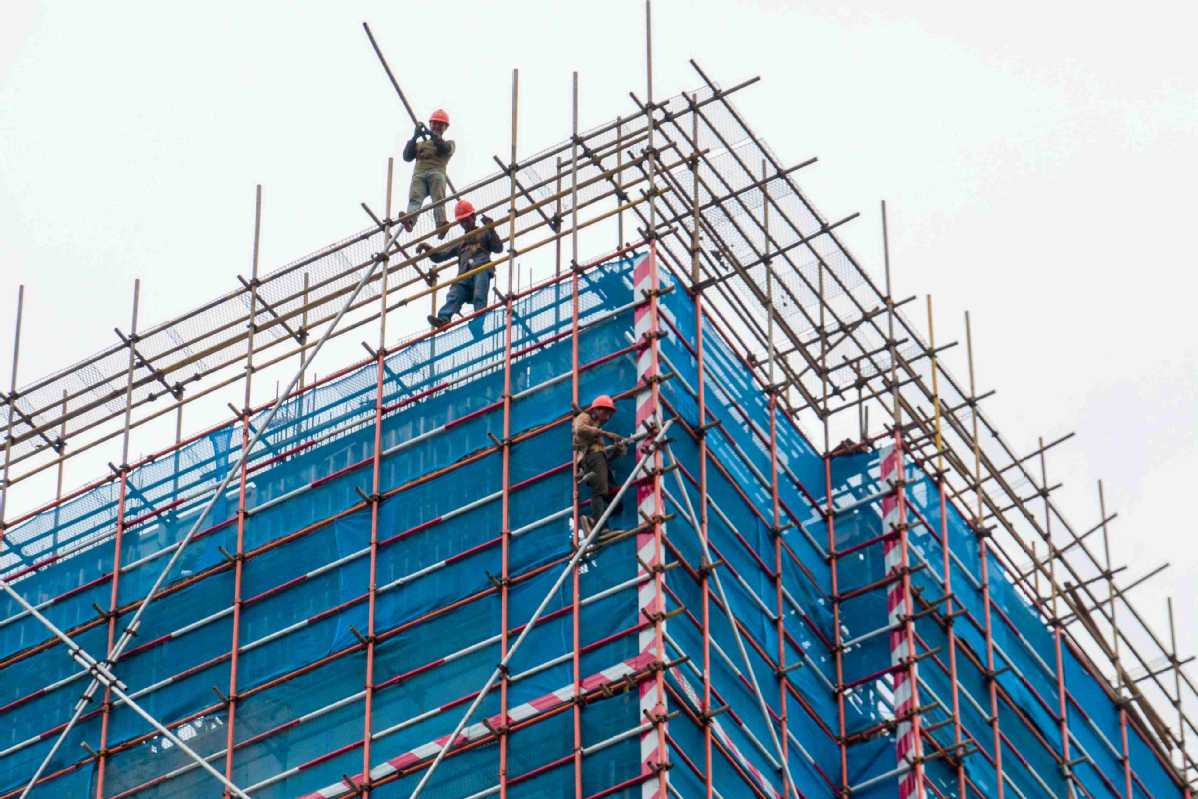Stricter rules help stabilize home prices


Rises slow in August; tighter credit policies at local level reduce deals
China's home prices increased in August but at a slower pace as regulatory measures continue to rein in and stabilize the disorderly market. So, major cities are expected to see limited room for growth in home prices, industry experts said.
In August, home prices in 70 Chinese major cities either grew marginally or edged down, both in year-on-year and month-on-month terms, suggesting the long-term nature of tightening rules continues to have the desired effect at local levels, said Sheng Guoqing, chief statistician with the National Bureau of Statistics.
Last month, new home prices in the 70 major cities tracked by the NBS grew 0.2 percent month-on-month and 3.7 percent year-on-year. Some 46 cities reported higher new home prices, down from 51 cities in July.
Top-tier cities' new home prices remained resilient with a 0.3 percent increase on average from the previous month. Shenzhen reported the largest month-on-month price increase of 1 percent, followed by Shanghai (0.4 percent) and Beijing (0.2 percent). But, in Guangzhou, Guangdong province, home prices decreased by 0.1 percent.
Compared to a year ago, the four benchmark cities' new home prices grew at a slower pace of 5.7 percent on average. It was 0.3 percentage point less than that of the previous month, according to the NBS.
The 31 second-tier cities, mostly provincial capitals, rose 0.2 percent month-on-month, and 4.4 percent year-on-year, while the figures stood flat and 2.8 percent, respectively, for the 35 third-tier cities.
Entering the third quarter, there appeared apparent signs of prices cooling. Local governments' tighter credit policies, in particular, led to fewer transactions that in turn led to a decrease in home prices, said Yan Yuejin, director of Shanghai-based E-house China Research and Development Institution.
In third-tier cities, new home prices ended a 17-month period of growth in August although no tighter home purchase regulations were announced.
Likewise, cities like Changde and Yueyang in Hunan province, Taiyuan in Shanxi province, Dali in Yunnan province, and Beihai in the Guangxi Zhuang autonomous region reported comparatively larger year-on-year declines, showing a need for market order amid mounting pressure for destocking, Yan said.
In August, Yueyang's local bureau of housing and construction issued a notice requiring that new home prices cannot be higher than the selling price the developer has filed with local housing authorities, nor 15 percent lower. Similar measures were taken in at least seven third- and fourth-tier cities.
Li Yujia, chief analyst at the provincial residential policy research center of Guangdong, said residential developers' marketing and promotional activities do not reflect a spirit of fair play. Market dynamics could get skewed when low-quality projects sell more on extensive promotions than high-quality properties offering smaller discounts.
First-tier cities continued to see their pre-owned home prices pare gains by 0.2 percent compared with the previous month. Guangzhou reported the largest month-on-month increase of 0.5 percent in transaction prices among the four mega cities, followed by Beijing (0.4 percent) and Shanghai (0.2 percent). Shenzhen posted a negative growth rate of-0.4 percent for the fourth successive month.
Pre-owned home prices in the 31 second-tier cities stayed unchanged from a month ago, and 3.2 percent year-on-year. The 35 third-tier cities saw their pre-owned home prices edge down 0.1 percent from the previous month, but rose 1.9 percent year-on-year.
"Apart from February 2020 when COVID-19 hit severely, this is the first time since 2016 that nearly half of China's major cities saw their pre-owned home prices drop, showing the new tighter regulations have had the desired effect," said Zhang Dawei, chief analyst at Centaline Property Agency Ltd.
Tighter rules are expected to further stabilize the home market, including first-tier cities that led the home price rise in the first half of this year, said Zhang.
Despite the overall home market showing signs of returning stability, the plight of cash-strapped, debt-laden China Evergrande Group, a prominent property company, has drawn public attention. Fu Linghui, an NBS spokesman, said on Wednesday some large-sized property companies are encountering some operational difficulties, and the impact on the real estate industry needs to be monitored.
"Overall, the current macro control measures have eliminated irrational demand, and secured people's normal demand for buying homes. With the consistent improvement of the Chinese property system, the real estate market would welcome long-term steady development," said Fu.
- Housing battles dilemma of price moves
- Beijing's housing sector headed toward stability in H2
- Segway-Ninebot unveils its first robotic lawnmower
- Laser televisions making their mark at home, abroad on technology surge
- Flawed downsizing of US commitments deals blow to its leadership credentials: China Daily editorial




































